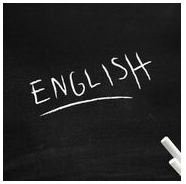Nouns and Verbs as Adverbials in English Grammar and the Positions of Adverbials in English Grammar
Noun Phrases
The fourth grammatical form that performs the grammatical function of adverbial is the noun phrase. Nouns are traditionally defined as “words that refer to people, places, things, and ideas.” Noun phrases are phrases with a noun functioning as the head of the phrase plus any determiners, adjective phrases, prepositional phrases, verb phrases, adjective clauses, noun clauses, and noun phrases functioning as determinatives, noun phrase modifiers, and noun phrase complements. For example:
- We leave for our vacation tomorrow morning. (When do we leave for our vacation?)
- All children should go home before dark. (Where should all children go?)
- Yesterday she went to the mall. (When did she go to the mall?)
Verb Phrases
The fifth grammatical form that performs the grammatical function of adverbial is the verb phrase. Verbs are traditionally defined as “words that indicate an action or state of being.” Verb phrases are phrases with a verb functioning as the head of the phrase plus any auxiliary verbs, prepositions, prepositional phrases, adverb phrases, and determiners functioning as progressives, perfects, passives, operators, modals, particles, verb phrase modifiers, verb phrase complements, and determinatives. For example:
- Running on the ice, the child slipped and fell down. (How and why did the child slip and fall down?)
- Please open the window to let in some fresh air. (Why open the window?)
- To make eggnog, begin with fresh eggs. (Why begin with fresh eggs?)
Positions of Adverbials
Adverbials appear in three positions within English sentences: before the clause, in the middle of the clause, and after the clause. For example:
-
Adverbial | Clause
-
After she washed her hands, | she prepared dinner.
-
Because of the storm | classes were cancelled.
-
Yesterday | I tried sushi.
-
Clause | Adverbial
-
We hiked | through the forest.
-
They went to the movies | Monday evening.
-
Patrons should return all books | to avoid steep fines.
-
Clause Beginning | Adverbial | Clause End
-
My husband said that, | although he dislikes musicals, | he will attend the show.
-
The children are | quietly | studying.
-
My classmate, | to pass the exam, | studied all night.
Printable Download
For a printable reference sheet of the five grammatical forms that perform the grammatical function of adverbial, please download English Adverbials Reference Sheet.
This post is part of the series: English Adverbials
Adverbials modify an entire clause by providing additional information about time, place, manner, condition, purpose, reason, result, and concession. The following series explains the five grammatical forms that function as adverbials as well as the positions of adverbials within English sentences.
